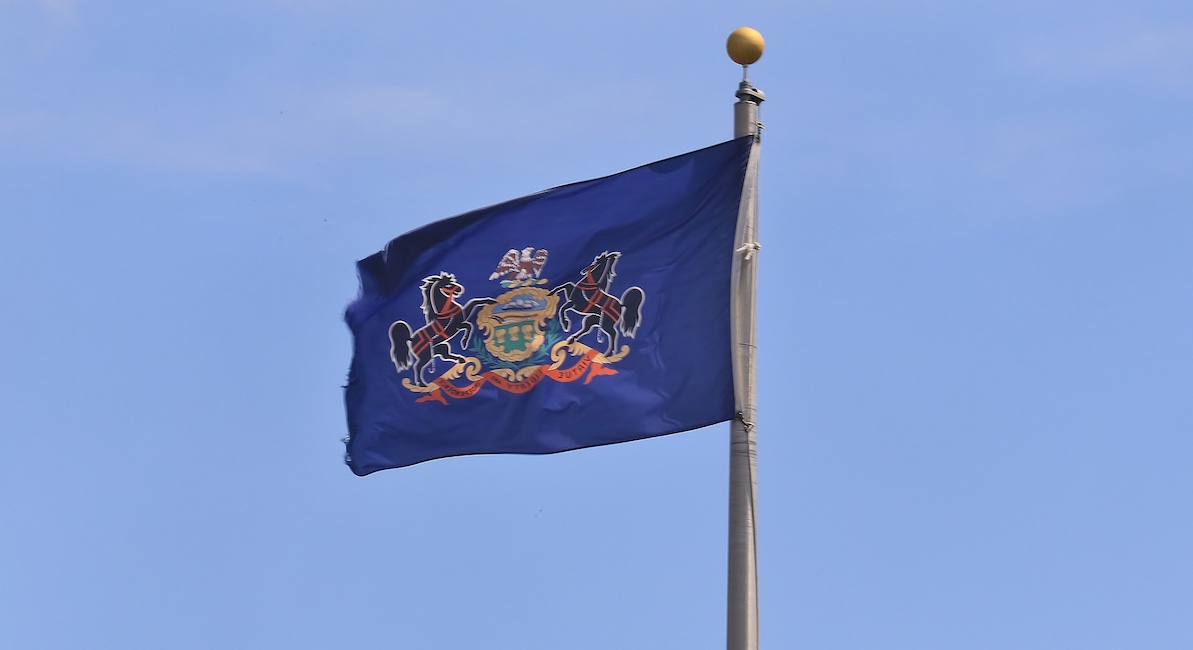Last year, Live Action News reported on an ongoing legal battle, Reilly vs. City of Harrisburg, over a buffer zone law in Harrisburg, Pennsylvania. Now, that legal battle may be headed to the U.S. Supreme Court.
Pro-lifers Becky Biter and Colleen Reilly, represented by Liberty Counsel, are suing the city of Harrisburg regarding the constitutionality of a buffer zone outside of a local Planned Parenthood. The original Harrisburg buffer zone ordinance went into effect in 2012, and in 2016, Biter and Reilly filed suit over the law’s violation of their First Amendment right to free speech in public places, as well as the ordinance’s selective application to pro-lifers only.
Buffer zones are “limited, fixed areas surrounding the entrance of a building designed to protect patients and facility employees from harassment, obstruction, and potential violence” according to the pro-choice Women’s Law Project, serving as legal counsel for the Planned Parenthood staffers who have testified in the case. According to the Harrisburg ordinance, pro-lifers are not allowed to “knowingly congregate, patrol, picket or demonstrate in a zone extending 20 feet from any portion of an entrance to, exit from, or driveway of a health care facility.”
Biter and Reilly have both served for years as sidewalk counselors, praying peacefully and offering alternatives to women seeking abortions at the Harrisburg Planned Parenthood. In their case, they simply sought an injunction, a legal stay that prevents a law from being enforced. The injunction was denied at the District Court level in 2017. The pro-lifers sought an appeal, and the U.S. Circuit Court ruled that the District Judge “ignored the First Amendment’s requirement that Harrisburg prove its ordinance did not unconstitutionally burden speech.” The Circuit Court further requested that the District Judge assess whether the City of Harrisburg could prove that the buffer zone did not violate the pro-lifer’s free speech rights.
Instead, District Judge Sylvia Rambo doubled down on her initial ruling.
READ: Judge ignores Court of Appeals, keeps unconstitutional abortion ‘buffer zone’
In late May of 2019, Liberty Counsel once again filed an appeal specifically addressing the City of Harrisburg’s failure to employ less restrictive means of preventing “harassment, obstruction, and potential violence,” such as enforcing laws already on the books, before filing the Planned Parenthood-drafted ordinance.
In October of 2019, the U.S. Circuit Court of Appeals responded by actually affirming the District Court’s ruling, stating simply that the ordinance did not apply to sidewalk counseling and therefore that the pro-lifers were not susceptible to arrest or prosecution for sidewalk counseling. The Circuit Court recognized the City’s failure to consider less restrictive methods before imposing the ordinance applying exclusively to pro-lifers, noting that the “entire ‘meaningful record’ of what they [the City] considered prior to enacting the Ordinance consists of the 12-page transcript of the only council meeting where the Ordinance was substantively discussed.” But the Circuit Court ultimately dismissed the lack of utilizing less restrictive alternatives, saying that “all that our precedent requires is that ‘substantially less-restrictive alternatives were tried and failed, or that the alternatives were closely examined and ruled out.'”
Since this narrow ruling altogether skirted the issue of buffer zone law unconstitutionality, on June 9, 2020, Liberty Counsel formally requested that the Supreme Court hear their case. In a statement, Liberty Counsel Founder and Chairman Mat Staver said, “The city of Harrisburg has a constitutional mandate to protect the free speech rights of all people in its jurisdiction, and it has no authority to discriminate on the basis of pro-life viewpoints. Public sidewalks and parks have always been protected as places where people can gather to participate in the marketplace of ideas. The court of appeals ignored binding Supreme Court precedent.”
The Supreme Court’s precedent does not support the legality of buffer zone laws. In 2014, the Supreme Court found that Massachusett’s buffer zone law was unconstitutional.
“Like” Live Action News on Facebook for more pro-life news and commentary!







